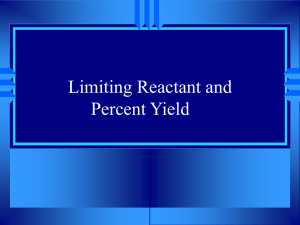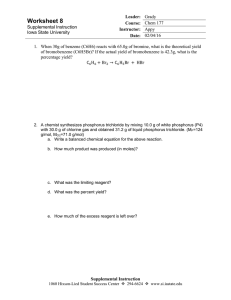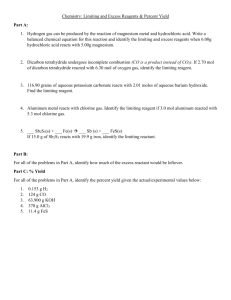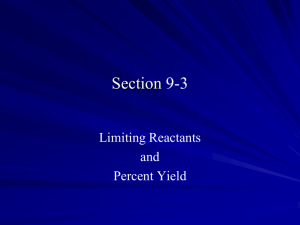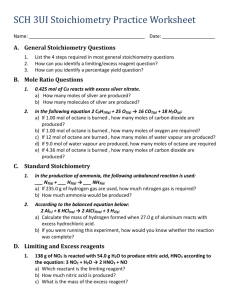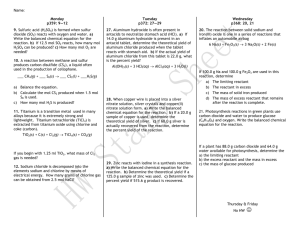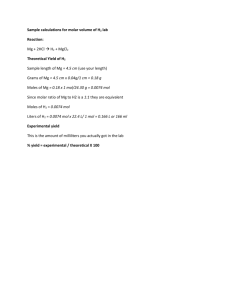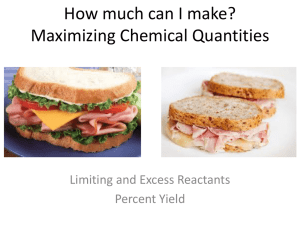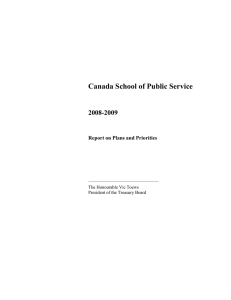Limiting Reagents and Percent Yield
advertisement
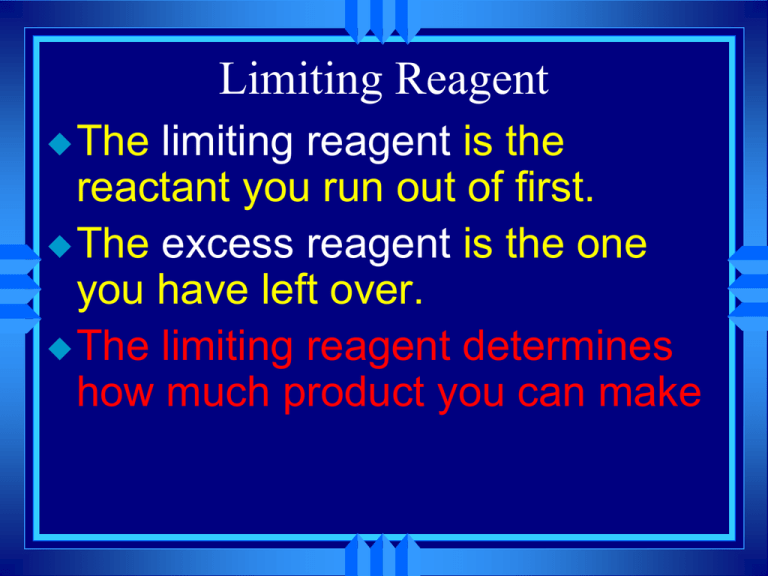
Limiting Reagent The limiting reagent is the reactant you run out of first. The excess reagent is the one you have left over. The limiting reagent determines how much product you can make How do you find out? Do two stoichiometry problems. The one that makes the least product is the limiting reagent. For example Copper reacts with sulfur to form copper(I) sulfide. If 10.6 g of copper reacts with 3.83 g S how much product will be formed? If 10.6 g of copper reacts with 3.83 g S. How many grams of product will be formed? Cu is 2Cu + S Cu2Limiting S 1 mol Cu2S 159.16 g Cu2S 1 mol Cu Reagent 10.6 g Cu 63.55g Cu 2 mol Cu 1 mol Cu2S = 13.3 g Cu2S 1 mol S 3.83 g S 32.06g S 1 mol Cu2S 159.16 g Cu2S 1 mol S 1 mol Cu2S = 19.0 g Cu2S How much excess reactant? Use the limiting reactant to find out how much excess reactant you used Subtract that from the amount of excess you started with Your turn Mg(s) +2 HCl(g) MgCl2(s) +H2(g) If 4.87 mol of magnesium and 9.84 mol of HCl gas are reacted, how many moles of gas will be produced? What is the limiting reagent? How much excess reagent remains? Your Turn If 10.3 g of aluminum are reacted with 51.7 g of CuSO4 how much copper will be produced? How much excess reagent will remain? Yield The amount of product made in a chemical reaction. There are three types Actual yield- what you get in the lab when the chemicals are mixed Theoretical yield- what the balanced equation tells you you should make. Percent yield = Actual x 100 % Theoretical Example 6.78 g of copper is produced when 3.92 g of Al are reacted with excess copper (II) sulfate. 2Al + 3 CuSO4 Al2(SO4)3 + 3Cu What is the actual yield? What is the theoretical yield? What is the percent yield? If you had started with 9.73 g of Al, how much copper would you expect to produce? Details Percent yield tells us how “efficient” a reaction is. Percent yield can not be bigger than 100 %. How would you get good at this?
